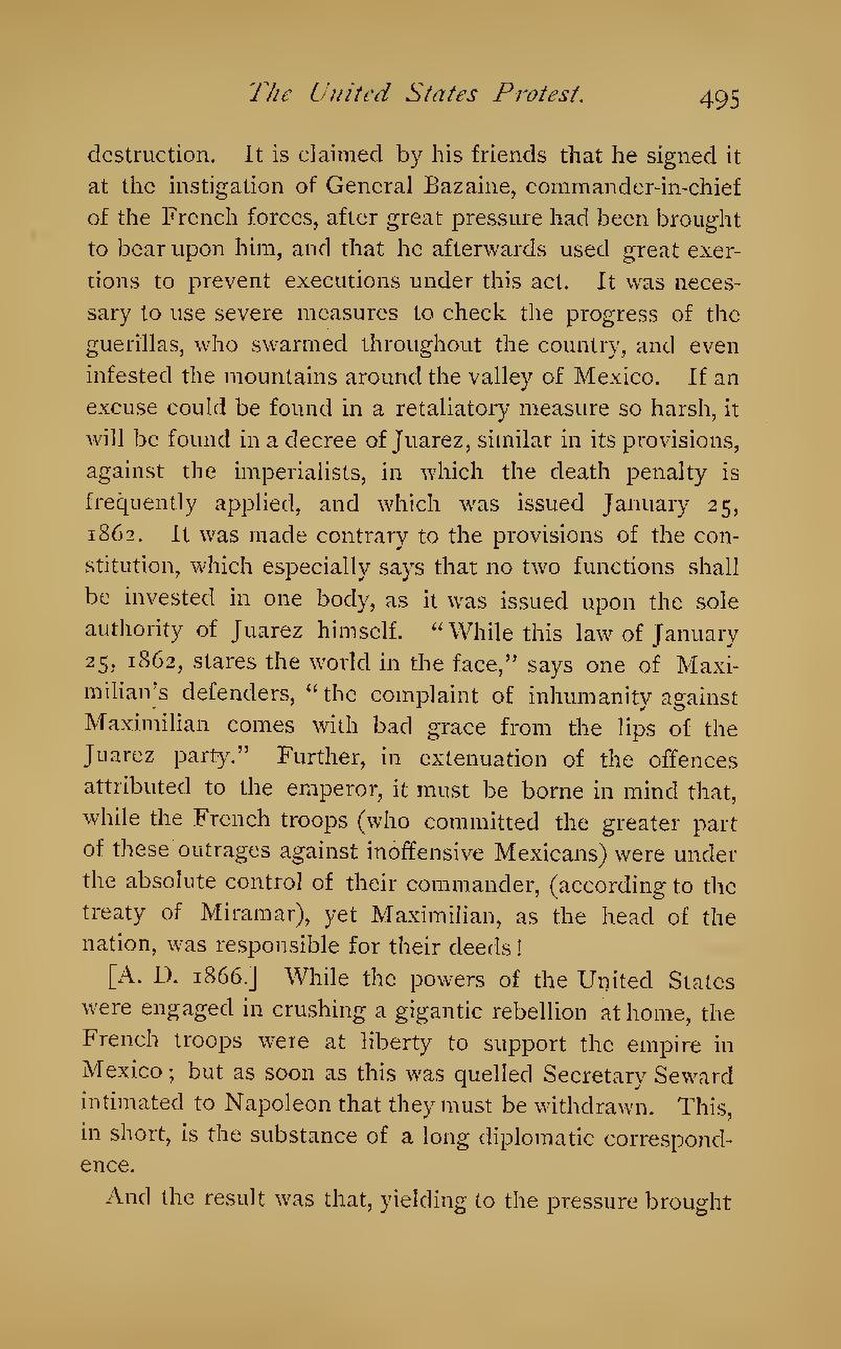destruction. It is claimed by his friends that he signed it at the instigation of General Bazaine, commander-in-chief of the French forces, after great pressure had been brought to bear upon him, and that he afterwards used great exertions to prevent executions under this act. It was necessary to use severe measures to check the progress of the guerillas, who swarmed throughout the country, and even infested the mountains around the valley of Mexico. If an excuse could be found in a retaliatory measure so harsh, it will be found in a decree of Juarez, similar in its provisions, against the imperialists, in which the death penalty is frequently applied, and which was issued January 25, 1862. It was made contrary to the provisions of the constitution, which especially says that no two functions shall be invested in one body, as it was issued upon the sole authority of Juarez himself. "While this law of January 25, 1862, stares the world in the face," says one of Maximilian's defenders, "the complaint of inhumanity against Maximilian comes with bad grace from the lips of the Juarez party." Further, in extenuation of the offences attributed to the emperor, it must be borne in mind that, while the French troops (who committed the greater part of these outrages against inoffensive Mexicans) were under the absolute control of their commander, (according to the treaty of Miramar), yet Maximilian, as the head of the nation, was responsible for their deeds!
[A. D. 1866.] While the powers of the United States were engaged in crushing a gigantic rebellion at home, the French troops were at liberty to support the empire in Mexico; but as soon as this was quelled Secretary Seward intimated to Napoleon that they must be withdrawn. This, in short, is the substance of a long diplomatic correspondence.
And the result was that, yielding to the pressure brought
